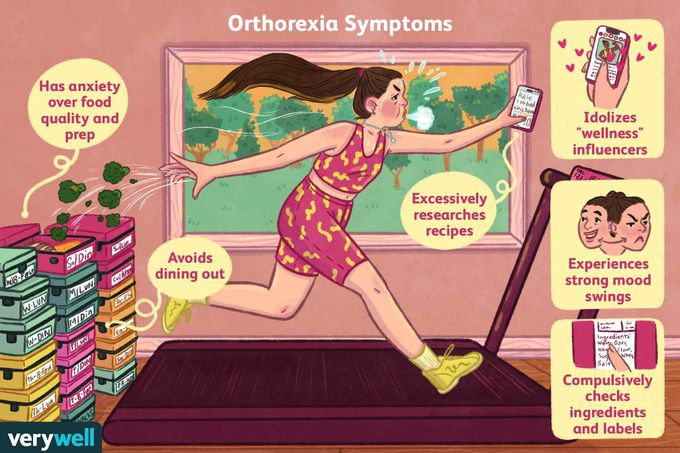


Treatment of orthorexia
The health effects of orthorexia can be just as severe as those of other eating disorders. If left untreated, orthorexia can result in irreversible damage to a person’s health. The first step toward overcoming orthorexia is identifying its presence. Acknowledging the problem can be challenging, because people who have this disorder are less likely to recognize any of its negative effects on their health, well-being, or social function. In fact, many may believe their behaviors are promoting health rather than harming it. Once an individual is able to recognize these negative effects, it’s recommended that they seek help from a multidisciplinary team that includes a doctor, a psychologist, and a registered dietitian. In some cases, eating disorder experts will treat orthorexia as a variety of anorexia and/or of OCD and will discuss treatments such as: psychotherapy to treat underlying disorders such as anxiety, depression, or OCD gradual exposure and reintroduction to trigger foods behavior modification cognitive reframing or restructuring various forms of relation training (e.g., mediation, yoga, tai chi, guided imagery, breathing exercises) weight restoration, as needed However, the effectiveness of these treatments for orthorexia hasn’t been scientifically confirmed (5Trusted Source). Also, it’s important to note that orthorexia — like any other eating disorder — can occur in people of all body shapes and sizes. Therefore, being underweight is not a diagnostic factor, and weight restoration won’t be part of everyone’s recovery journey. Finally, education on evidence-backed nutrition information may help people living with orthorexia to understand, limit, and eventually eliminate false food beliefs.
Wendigo syndrome

